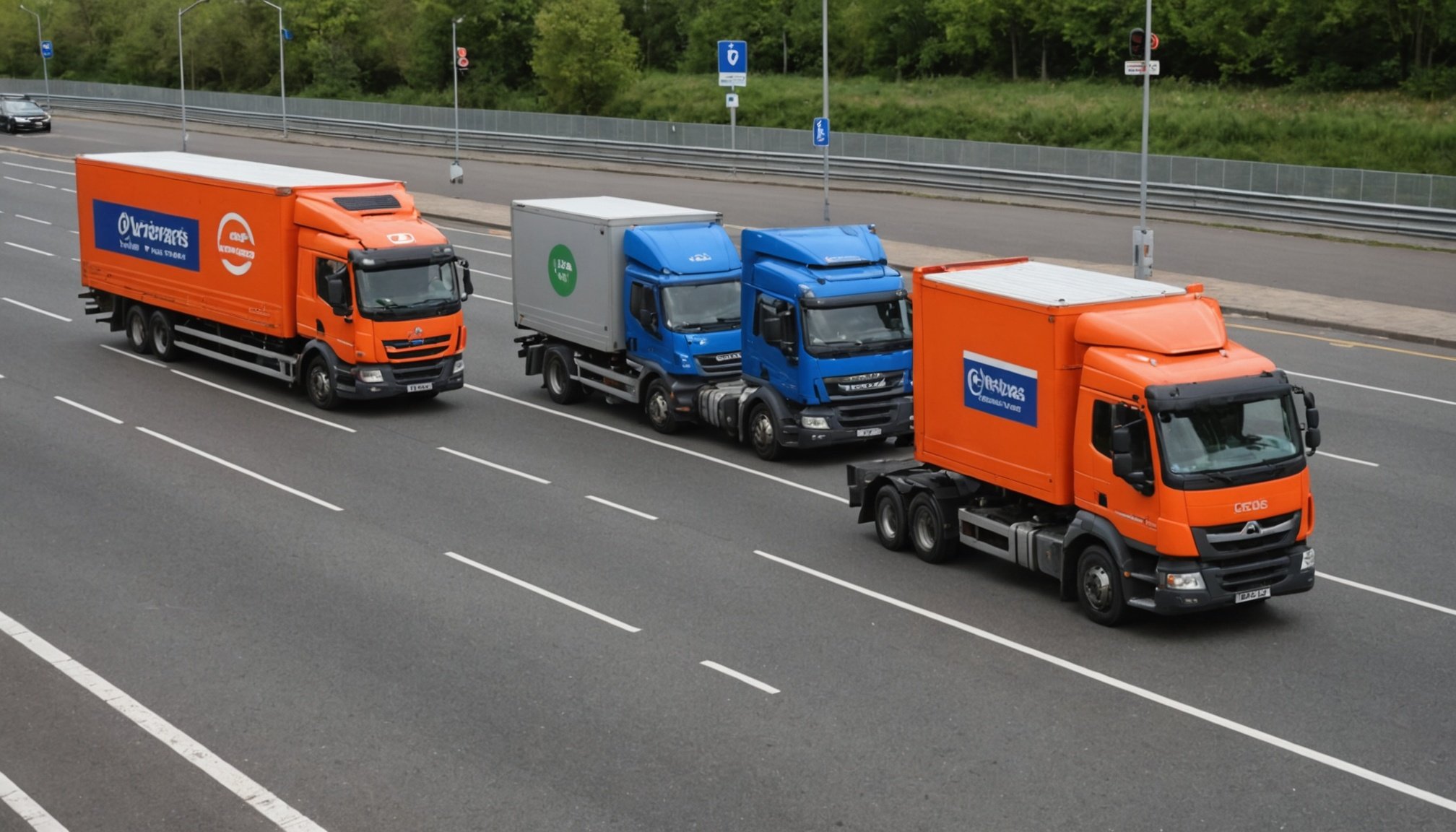Driving a commercial vehicle is no small feat. It requires a special set of skills, adherence to regulations and, most importantly, the right license. For most vehicles, a standard driver’s license will suffice. But when it comes to commercial vehicles such as Heavy Goods Vehicles (HGVs), buses, and trailers, a different type of license is required – a Commercial Driving License (CDL).
In the UK, the process of obtaining a CDL can be quite challenging. It involves passing a series of rigorous tests, completing training, and meeting several other criteria. This comprehensive guide will walk you through all the requirements that you need to fulfil in order to obtain your CDL in the UK.
In the same genre : How can UK drivers safely transport pets in their vehicles?
The Importance of a Commercial Driving License
Before we delve into the requirements, let’s first understand the significance of a CDL. A commercial driving license is mandatory for drivers who wish to operate commercial vehicles. These include any vehicle that is designed to transport goods or passengers for business purposes. In the UK, the category of the CDL will determine the type of vehicle you can drive. For instance, Category C allows you to drive vehicles over 3.5 tonnes, and Category D lets you drive buses.
Having a CDL not only allows you to legally drive a commercial vehicle but also demonstrates your competency as a driver. It shows that you have undergone the necessary training and passed the tests to safely operate large, potentially dangerous vehicles on the road.
In parallel : How to prepare and maintain your vehicle for the UK’s MOT test regarding emissions?
The Basic Requirements
To be eligible for a commercial driving license in the UK, you need to meet some basic requirements. To start with, you must be at least 18 years old to apply for a CDL. However, age is not the only factor. Your health is also a critical aspect.
You will need to pass a medical examination, which includes a vision test. The purpose of this is to ensure that you are physically fit and able to safely control a large vehicle on the road. A history of certain medical conditions or a poor vision report could potentially disqualify you from obtaining a CDL.
Furthermore, you must already hold a full car driving license before you can apply for a CDL. The type of vehicle you wish to drive will determine the specific class of CDL you’ll need to apply for.
The Training Process
Obtaining a commercial driver’s license involves a comprehensive training process. It’s not as simple as applying for a regular driving license. You are going to be driving a large, heavy vehicle, so the training is much more thorough.
First, you need to apply for a provisional lorry or bus license, and then you can start your driver training. There are several HGV training schools across the UK that offer comprehensive training programs. These programs generally cover everything from vehicle controls, driving techniques, to safety procedures.
The training process culminates in a series of tests. You will need to pass a theory test, a case studies test, a driving ability test, and a practical demonstration test. The actual content of these tests will depend on the vehicle category you are applying for.
The Driving Tests
As mentioned earlier, there are several tests you need to pass in order to obtain a CDL. These tests are designed to assess not just your driving skills, but also your knowledge and understanding of safety regulations.
The theory test is a computer-based test that includes multiple-choice questions on vehicle safety, road signs, and driving laws. The case studies test is also computer-based and involves several real-life scenarios that you might encounter while driving.
The driving ability test is a practical test where you are required to drive the vehicle on the road in various traffic conditions. The examiner will assess your ability to handle the vehicle, your awareness of other road users, and your adherence to traffic rules.
Finally, the practical demonstration test involves showing the examiner that you can carry out vehicle safety checks and can load the vehicle correctly and securely. It also includes questions on manual handling and first aid.
Other Considerations
Apart from meeting the basic requirements, undergoing training, and passing the tests, there are a few other considerations to keep in mind. For instance, the cost of obtaining a CDL can be quite significant. This includes fees for the license application, medical examination, training, and tests.
Moreover, the process can be time-consuming. It’s not something you can achieve overnight. The duration of the training will depend on your ability to learn and master the skills. On average, it can take anywhere from a few weeks to a few months to obtain a CDL.
In conclusion, getting a commercial driving license in the UK involves a rigorous process. But with the right preparation and commitment, it’s an achievable goal. After all, the safety of you and others on the road is of utmost importance. Therefore, the stringent requirements and tests are necessary to ensure that only competent drivers are allowed to operate commercial vehicles.
Renewal and Penalties
Once you have successfully obtained a commercial driver’s license, it’s essential to remember that it does not last a lifetime and requires renewal. In the UK, if you’re under 65 years old, your lorry or bus driving licence will be valid for five years. For those aged 65 or over, the licence will need to be renewed annually.
To renew your licence, you will need to provide a completed D2 application form and a D4 medical form completed by a doctor. It’s crucial to keep your HGV licence updated as driving with an expired licence can lead to severe penalties, including fines and disqualification.
Further, as a commercial driver, you have a responsibility to maintain a high standard of driving. If you fail to adhere to road safety rules and regulations, you could end up losing your licence. For instance, accumulating more than six penalty points within two years of passing your test can result in a temporary ban. Serious offences like dangerous driving could even lead to permanent disqualification.
Moreover, drivers who hold a Category C or Category D licence must complete 35 hours of periodic training every five years to retain their Driver CPC (Certificate of Professional Competence). This is to ensure that commercial drivers keep their skills and knowledge up to date.
Securing a Commercial Driving Job
Once you have obtained your commercial driving license and are ready to hit the road, the next step is to secure a job. The good news is that there’s a high demand for commercial drivers, especially HGV drivers, in the UK.
Various industries and businesses require commercial drivers. These include transportation and logistics companies, warehousing and storage businesses, construction companies, and more. Some commercial drivers also operate as independent contractors, transporting goods for various clients.
When looking for driving jobs, it’s important to consider the conditions of work. For instance, some jobs may require long-distance travel or overnight stays, while others might involve local deliveries only. Pay, benefits, and work schedule are also vital considerations.
Finally, remember that a clean driving record, good physical health, and excellent driving skills can increase your chances of landing a rewarding commercial driving job. Your job performance will also play a crucial role in your future career advancement possibilities.
Conclusion
In summary, obtaining a commercial driving license in the UK is a comprehensive process that involves meeting specific requirements, undergoing rigorous training, and passing a series of tests. Despite the challenges, the rewards can be significant. Indeed, a CDL opens up a world of opportunities, including access to a wide range of driving jobs.
Remember, as a commercial driver, you have a special responsibility to ensure road safety. Thus, it’s crucial to maintain a high standard of driving, abide by the rules, and keep your skills and knowledge updated. With the right attitude, preparation, and commitment, you can succeed in your journey to becoming a successful commercial driver.
As of the time of writing this article in April 2024, the information presented is current and accurate. However, it’s always wise to check the latest rules and regulations in your area before proceeding, as these may vary.











